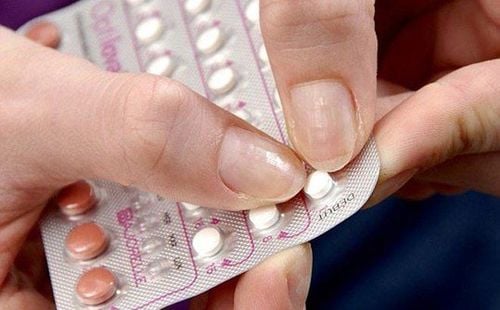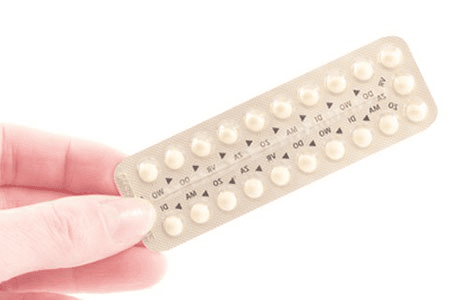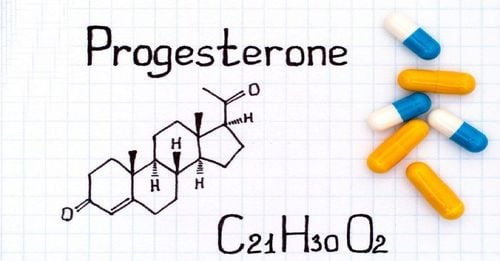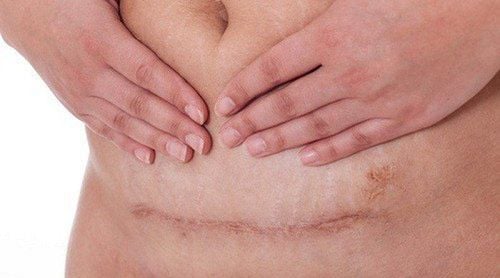This is an automatically translated article.
Hormonal contraceptives, although more effective than other forms of birth control, can help treat other health problems such as reduced periods, skin changes, and more. .. However, they still have side effects. The following is information about the effects of hormonal contraceptives on your body.1. Hormonal methods of contraception
Birth control pills and patches are only available with a doctor's prescription. Hormone-based birth control pills come in many forms, including:Pills (or birth control pills): The main difference between brands is the amount of estrogen and progestin in them. This is why some women switch medications if they think they are getting too little or too much hormone, based on their symptoms after taking the pill. The pill must be used every day to prevent pregnancy. Birth control patch: The patch also contains estrogen and progestin, but is placed on the skin. Vaginal IUD: Similar to the patch and pill, the ring also releases estrogen and progestin into the uterus. The ring is worn inside the vagina so that the vaginal lining can absorb the T hormones Contraceptives (Depo-Provera) : The injection contains only progestin and is used for 12 weeks an IUD: Yes both IUDs with and without hormones, they release hormones, they may contain progesterone. Contraceptive implant: The implant contains progestin that is released through a thin rod into your arm. It is placed under the skin on the inside of your arm by your doctor.
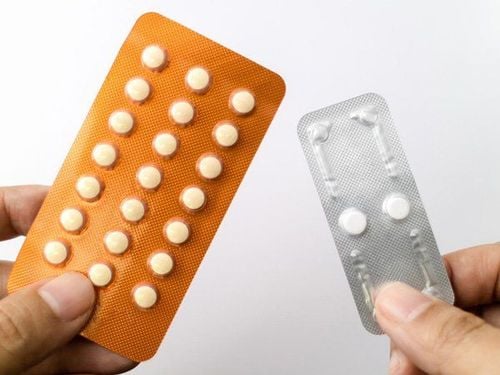
Thuốc tránh thai nội tiết có nhiều dạng
2. The effects of hormonal birth control methods on your body
Each type has its own benefits and risks that depend on the individual's body.2.1 Reproductive system The ovaries naturally produce the female hormones estrogen and progestin. Either of these hormones can be produced synthetically and used in contraceptives.
Higher-than-normal levels of estrogen and progestin prevent the ovaries from releasing an egg. Without an egg, the sperm will not be able to fertilize it. Progestin also changes cervical mucus, making it thick and sticky, making it harder for sperm to find its way into the uterus.
When using some hormonal contraceptives like the Mirena IUD, you may find that your periods are lighter and shorter, and that your menstrual cramps and premenstrual symptoms are reduced. These effects are one of the reasons why some women use birth control specifically for premenstrual dysphoric disorder (PMDD). Some women with endometriosis also use birth control to ease painful symptoms.
Using hormone-based contraceptives can even reduce the risk of endometrial and ovarian cancer. The longer you take them, the lower your risk is. These methods can also help you reduce your risk of developing noncancerous breast or ovarian cysts. However, controversy remains regarding the possibility that hormonal contraceptives may increase breast cancer risk somewhat.
When you stop using hormonal birth control, your period will likely return to normal within a few months. Some of the cancer prevention benefits that accrue from years of drug use may persist for several more years.
Fertility side effects as your body is adapting to oral, inserted, and patch methods of contraception include:
Amenorrhea (amenorrhea) or heavy periods Some bleeding or spotting between your periods periods Vaginal irritation Breast tenderness Changes in your sex drive Serious but uncommon side effects include heavy bleeding or bleeding that lasts more than a week.

Thuốc tránh thai nội tiết có thể gây buồn nôn, đầy hơi
Other side effects include: Nausea and bloating, but these tend to subside after a few weeks as your body gets used to the additional hormones.
If you have a history of gallstones, using birth control may lead to faster stone formation. Once you have severe pain, vomiting or yellowing of the skin and eyes (jaundice); dark urine ... see a doctor immediately
2.3 Skin Certain birth control pills work to reduce acne . On the other hand, others may experience breakouts or notice no change at all.
In some cases, birth control can cause light brown spots on the skin. Every woman's body and hormone levels are different, which is why it's difficult to predict what side effects will occur from birth control.
Talk to your doctor if you feel that current birth control is not right for you. Being open and honest about your side effects and how they feel is the first step to getting the right dose and type you need.
Please dial HOTLINE for more information or register for an appointment HERE. Download MyVinmec app to make appointments faster and to manage your bookings easily.
Reference source: healthline.com



